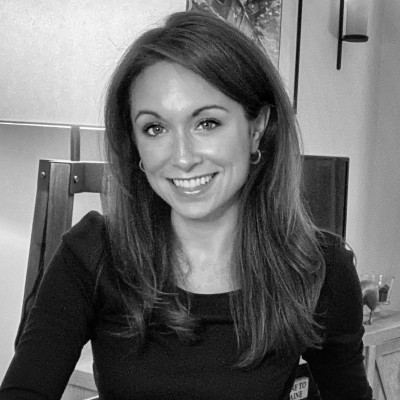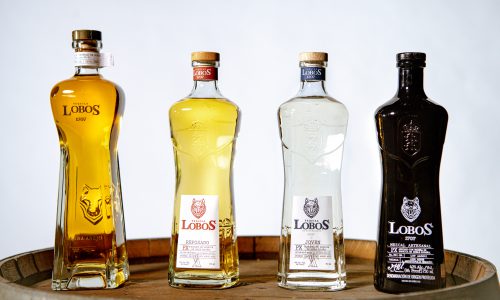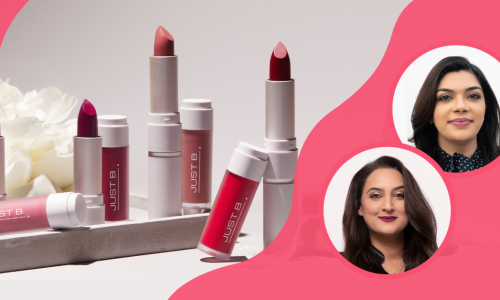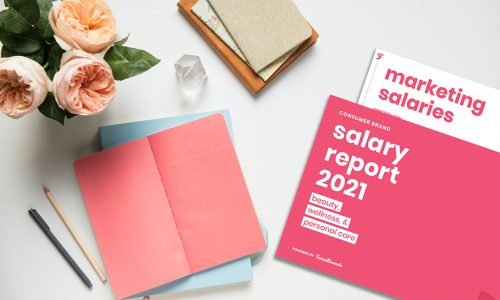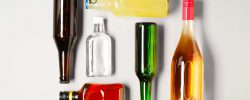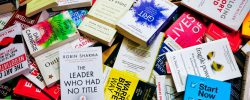With a shared passion for the ocean and sustainable design, Will Gahagan and Hank Schellenger are cleaning up the wipes industry.
While straws and plastic bottles may first come to mind when people think about environmentally-unfriendly products, 90 percent of wet wipes contain plastic. This discovery, combined with the fact that all wipes produced globally in 2021 accounted for a weight equivalent to the Great Wall of China, prompted Gahagan to reach out to Schellenger for design expertise. And by 2022, biom was born.
Design-driven and planet-approved, biom offers 100 percent plant-based, biodegradable wipes in innovative packaging. We caught up with the two co-founders to learn more about how they’re disrupting the wipes category, building out their team in a remote environment, and more.
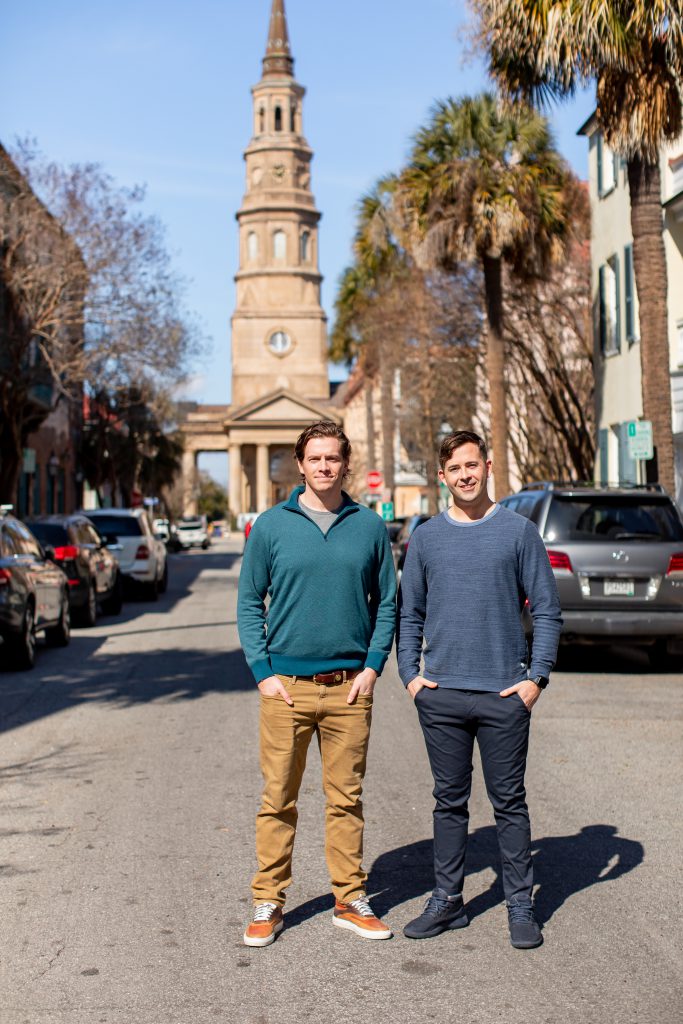
ForceBrands: Tell us about biom and what makes it unique in the world of sustainable cleaning solutions.
Will Gahagan: Most wipes that are marketed as sustainable contain fibers like polyester and polypropylene, which contribute to billions of pounds of plastic waste each year. They also contain harmful chemicals. biom marries the power of good design with functionality to bring sustainable innovation to everyday wipes — 100 percent plant-based and biodegradable wipes that can tackle any task. We craft all of our wipes with the consumer and planet in mind.
As it relates to formulations, we operate under the mantra “less is more” and look to strip away all unnecessary ingredients. Our Sanitizing and All-Purpose Wipes are plastic-free, plant-based (made from 100 percent viscose), skin-friendly, and biodegradable, containing all-natural scents derived from essential oils, with no synthetic fragrances. All wipe fibers are extracted from sustainably grown wood, using a unique closed-loop system, which recovers and re-uses solvents, minimizing the environmental impact of production. biom’s wipes are gentle on the skin, with efficient moisture management and a high tenacity profile.
We chose to produce an All-Purpose cleaner and a Sanitizing line as we are big believers that not all bacteria is bad bacteria, and in the wake of COVID, we were concerned that everyone was going a bit overboard on disinfecting. That said, we moved forward with a skin-friendly germ-killer (Sanitizing Wipe) and a soap-based cleaner to remove instead of kill germs (All-Purpose Wipe) to inspire intentional cleaning habits.
Hank Schellenger: To eliminate the single-use tube that many wipes are available in, biom’s Dispenser is endlessly refillable and our packaging is made in part from post-consumer recycled material and is recycle-friendly, using a flow wrap machine to reduce plastic waste by more than 85 percent. We’re providing a level of transparency that most brands don’t have to offer while keeping aesthetics top of mind. In addition to being harmful to the planet and environment, a major downside of existing wipes is their lack of thoughtful product design.
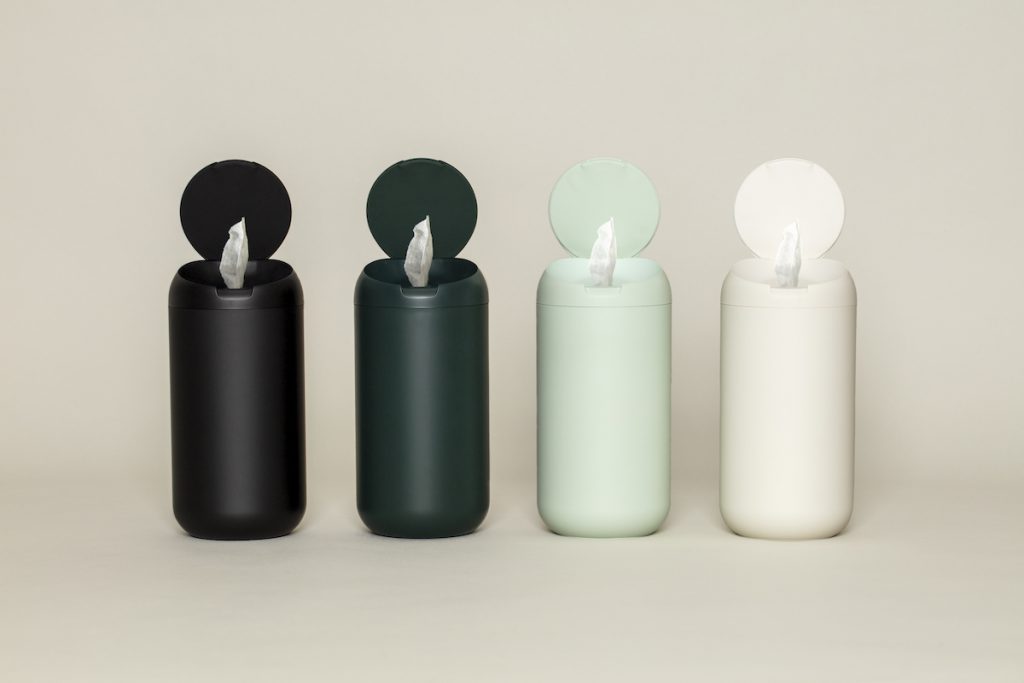
FB: What specific problem is biom trying to solve?
WG: Our goal with biom is to clean up the horribly wasteful wipes industry. The pandemic has driven a 150 percent increase in the use of disinfectant wipes, and consumers are seeking out these types of products now more than ever. But the average consumer is unaware of the harm big brand wipes cause to both themselves and the environment. This inspired Hank and I to create biom. We’re eliminating the need for single-use plastic to the maximum extent by providing safe solutions that are kind to both humans and the environment, while still maintaining efficacy for the task at hand, which is currently sanitizing and cleaning. And we’re just getting started!
FB: Between your respective backgrounds in sales and design, how did you two cross paths and what made you decide to create biom?
WG: Hank and I have known each other for most of our lives and have always shared a passion for the ocean and sustainable design. I left my job at a San Francisco-based tech company in January of 2020. Soon after, I was asked by a friend if I had any interest in helping broker PPE as Covid was on the rise. With an extensive background in sales, it seemed like a simple task and would be a way to help essential businesses secure gloves, masks, wipes, etc. That said, I agreed.
I soon engaged with one of the largest convenience stores on the East Coast. The company was looking to order a couple of million disinfectant wipes in containers and they had budgeted $6 million for the purchase. At the time it was near impossible to find EPA-certified disinfectant wipes as every manufacturer was running 24/7 and could not keep up with the demand. We eventually found a manufacturer who was willing to fulfill the order at their desired price, there was only one issue: the manufacturer could only package the wipes in flexible packaging (like baby wipes) as there was a shortage of the tops needed for the plastic tubes.
We had initially thought this was a good thing as the packaging allowed us to fit many more wipes on a pallet (the savings in shipping were close to $800,000). The convenience store, however, did not view it this way. They declined the deal and continued the search.
For the life of me, I could not understand why a company would pass on an offer like this as the wipes met all the necessary standards to kill what appeared to be the worst virus we had seen in modern history. Not to mention, it would have saved them money. I asked them to please explain. The answer I received changed my life in many ways, “You have to understand that we sell 95 percent of these on the shelf, and we can show you 30 years of data that when given the same product option for a disinfectant wipe in a tube vs. a flat stack, the customer buys the tube 90 percent of the time, and they are willing to pay more money for it.”
Upon hearing this I had to validate it, so I went straight to executives at the two largest producers of disinfectant wipes and I received the same responses, “We’d love to get away from the tubes, but they sell better on shelves. If we stop producing in the tubes, everyone will go buy the competitors’ products.”
I then became obsessed with the category — the more I researched, the more I was alarmed with just how wasteful the wipes industry is. Ninety percent of wipes contain plastic (this is true across baby, personal care, etc.) and harmful chemicals exist in the majority of disinfectants. Greenwashing is everywhere in this industry.
In 2020, the two leading brands were producing approximately 1 million tubes of disinfecting wipes every day. If you were to take all of the tubes produced that year, it would fill an NFL football stadium. What’s worse is the wipes inside also contain plastic. If you were to weigh all of the wipes produced globally in 2021, they would weigh more than the heaviest object on earth: The Great Wall of China. Now consider 90 percent of these wipes contain plastic fibers that never break down — it’s alarming.
The average consumer is pretty well aware that plastic water bottles and straws are bad for the environment, but no one seemed to be talking about wipes. It was very apparent that the big companies were looking to keep it this way.
After this revelation, I tapped Hank for his design expertise to help me create what is now biom.
FB: How have you approached team building and hiring? What qualities do you look for in key strategic hires?
HS: We’re still in the very early stages of hiring, however we’re currently working with a small, yet mighty team that consists of individuals from various professional backgrounds.
As we continue to scale our company and seek out talent, the goal is to find a group of innovative thinkers who are willing to challenge themselves by finding effective ways to disrupt the wipes industry, all while sharing the same level of love for the planet as Hank and I.
FB: What are some of the biggest challenges you’ve encountered as it relates to hiring in this highly competitive job market?
HS: Being virtual in Covid times makes it hard to get to know anyone on a personal level and promote a new team culture.
My background is in architecture and Will’s is in sales, so we had a steep growth curve with starting this company and are in constant learning mode. It took us a while to learn who the right people to hire are to round out the skill sets needed. It’s tough to find experienced individuals who want to work on an early stage startup for equity and what is often a salary cut, especially when larger companies and more established startups are paying big bucks.
FB: Describe your leadership style. Any mentors who’ve inspired you?
HS: I try to listen and ask questions more than speaking, being thoughtful and intentional with things I say.
I don’t think about failure much. Instead, I think more about the process of making and building something incrementally. I try to constantly think ‘high altitude’ to prevent myself and others from getting lost in the weeds.
I think a lot about encouraging people and bringing them to their highest level.
Mentors in my life are people who get their hands dirty and can delegate effectively because they have done it before. My mentors are all serious craftsmen, Ray Ginn, the master carpenter, and Greg Snyder, the professor and ‘maker guy.’
FB: Tell us about your distribution strategy; why did you decide to be a DTC-only brand at launch? Do you have plans to enter retail?
WG: Given the many crucial reasons that inspired us to conceptualize biom, we knew that there was an immediate need for sustainable, innovative wipe solutions. The industry has long lacked change and the consumer demand for change is certainly present — before our website even launched, we had an impressive waitlist. DTC was the most realistic and time-sensitive approach for launch, however retail is certainly the goal down the line. In the meantime, with our current subscription model-based strategy we’re focused on growing our consumer base and inspiring others to embrace better habits by utilizing biom.
FB: What’s ahead? Where do you see biom in the next 3-5 years?
WG: Overall, Hank and I are on a mission to shake up the wipes industry. We’re beginning our journey with cleaning essentials, which aim to better clean our homes and protect those around us, all while leaving less behind. We don’t want to give too much away, but we have innovation across new categories that we’re excited to explore and eventually bring to market!
